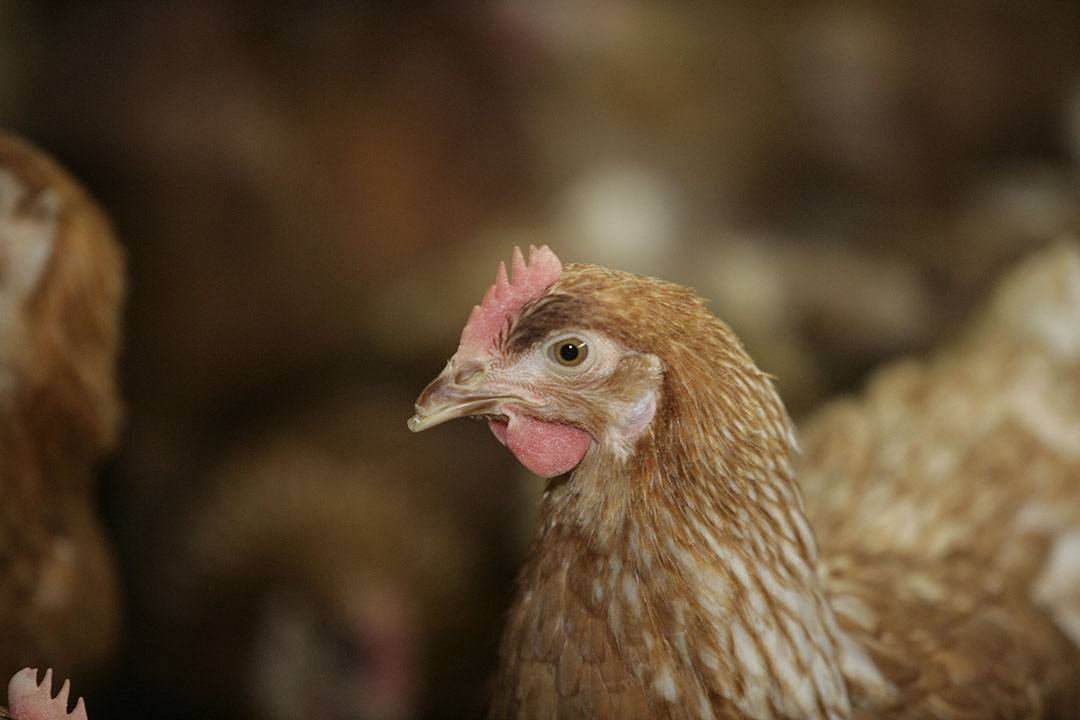Bacilli strains for more fertile birds

Probiotics can benefit poultry in several ways. One of them is that these live bacteria can extend the reproductive age of the birds. A new study therefore looked at the effect of preparations of two bacilli strains on laying hens and roosters.
Poultry farming is an extremely important area of industry and extending the reproductive age of birds could significantly increase the industry’s potential. The use of probiotics is a potential solution for several of the above problems. Probiotics are live microorganisms which when administered in adequate amounts confer a health benefit on the host (FAO/WHO, 2001). The effect of preparations based on two probiotic Bacillus strains on the physiological parameters of chickens was studied, as well as on the reproductive potential and rates of reproductive and physiological ageing in particular. Bacilli probiotics have been shown to improve egg mass, production, and quality (e.g. increase of the shell’s strength and thickness). These positive effects are usually proportional to the number of probiotic cells administered to the birds. However, there are also reports on lower loads of probiotic cells delivering the same biological effect as a high-load application.
Prolonging the reproductive age
Previously, we found that the strains Bacillus subtilis KATMIRA1933 and Bacillus amyloliquefaciens B-1895 are able to produce antioxidants, DNA-protectants, and other metabolites with adaptogenic properties that have not yet been fully studied. It is known that the addition of antioxidants to feed improves the fertility of breeder roosters. However, their effect on the reproductive potential of laying hens is not so well studied. According to one of many hypotheses, ageing, including reproductive ageing, is often associated with oxidative stress and DNA damage. Therefore, it seems promising to use feed additives containing substances that have antioxidant and DNA-protective activity to solve the problem of prolonging the reproductive age of livestock. Domestic poultry and cage birds are often considered as good models for the prevention of ageing-related oxidative and glycoxidative damage, because they live long enough, despite a high level of metabolism, and meet the other criteria of an optimal model species.
Experimental set-up
In a recent study, described in this paper, the possibility of increasing the reproductive resources of chickens by adding preparations of potential probiotic strains that produce these substances to the diet of chickens was investigated. Animal studies were carried out at JV ‘Svetly’, a unit of the Closed Joint-Stock Company ‘Agrofirma Vostok’ (Volgograd region, Russia), a farm for ‘Hisex Brown’ poultry breeding. The potentially probiotic preparations used in this study were produced at the purpose-launched location of the Volga Research Institute for the Production and Processing of Meat and Dairy Products (Volgograd, Russia). The content of viable spores in preparations was 107-109 spores/g. Four groups of hens, one-day-old chickens with 70 animals per group and 4 groups of roosters with seven animals each were formed. These groups consisted of a control and three experimental groups. The control group (Control) received a standard diet, while experimental animals received a diet with additives containing a specified number of microbes (Group I, preparations based on B. subtilis; Group II, B. amyloliquefaciens; and Group III, both strains). Feeding of the birds was carried out according to NRP guidelines (NRC, 1994).
Egg quality
The productivity of poultry in all experimental groups during the first five months of laying proved to be higher than in the control group throughout the entire period of observation. The thickness of the eggshell in the experimental groups exceeded the control by 3.35% (P<0.01) in group i, 1.96% (p><0.05) in group ii, and 2.79% (p><0.05) in group iii. since the composition of eggs largely depends on the feeding of the bird and the corresponding saturation of blood plasma with nutrients and lipoproteins, this biological effect can be used to improve both nutritional and incubation qualities. there was also a tendency to increase the protein content in the albumen portion of eggs from laying hens of experimental groups by 0.39% in group i, 0.24% in group ii, and 0.29% in group iii, and in the yolk by 1.42%, 1.48%, and 1.40%, respectively. in the last period of the experiment, the mass of eggs increased, and the relative chemical composition changed. the content of elements in experimental groups, both in the albumen and in the yolk, increased. however, in the experimental groups this index exceeded the control: in the albumen by 0.87% (p><0.01) in group i, 0.40% (p><0.05) in group ii, and 0.34% (p><0.05) in group iii; and in the yolk by 2.02% (p><0.01), 1.70% (p><0.01), and 1.62% (p><0.05), respectively.>
Positive influence on metabolism
In this study, the introduction of the tested bacilli strains into the diet of birds led to an improvement in the haematological and biochemical composition of the blood, sperm production, egg production, egg quality, and hatchability. This is likely due to the production of metabolites, exhibiting antioxidant and DNA-protective properties. Reports on Lactobacillus, Bifidobacterium, and Pediococcus fed birds show no differences in the blood composition number of red blood cells, haemoglobin or any other parameters in the blood. On the other hand, feeding birds with preparations of Bacillus leads to an increase in the number of red blood cells, haemoglobin, etc. This seems to be due to the stimulating effect of bacilli supplements on the organs of hemopoiesis. The researchers observed a decrease in the level of the albumin fraction. This is likely caused by a slowing of the metabolism due to the age of the bird coupled with fairly high productivity, which exceeded the normative parameters of the given bird cross in the experimental groups. It is known that albumins are transformed into egg proteins and, therefore, a decrease in albumin levels in the blood serum of hens is observed within the physiological norm. The obtained results suggest that the additives studied positively influence the metabolism of the poultry of the parent and, in particular, protein metabolism. The observed increase in the level of calcium in the blood during the pre-laying period and during oviposition should be considered not as a factor of intensification of calcium metabolism, but as a factor ensuring the transportation of stored constituents for the synthesis of egg yolk proteins and the formation of the shell. The calcium content in the blood serum decreased to the minimum values of the physiological norm by the end of the experiment, which in turn affected the calcium-phosphorus ratio and, as a consequence, the quality of the eggshell of hatching eggs. This can be explained by the age of the bird.
This is a summary of the original paper: Effect of Bacillus subtilis KATMIRA1933 and Bacillus amyloliquefaciens B-1895 on the productivity, reproductive ageing, and physiological characteristics of hens and roosters, published in Beneficial Microbes, Volume 10, issue 4.
Author: E.V. Prazdnova, Southern Federal University, Russia











